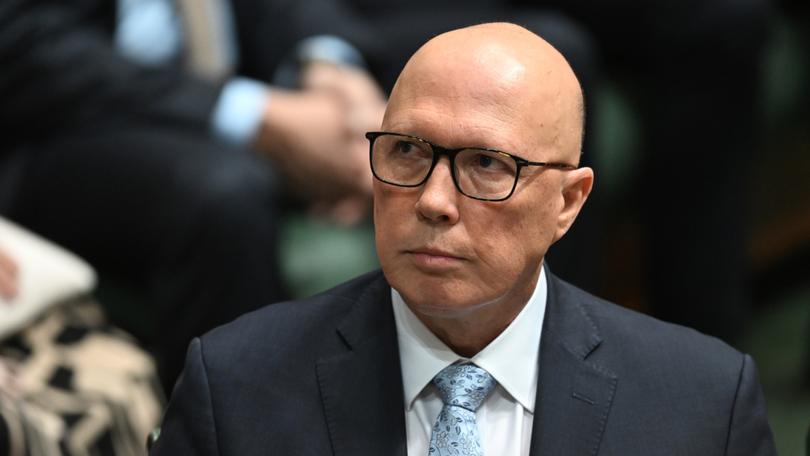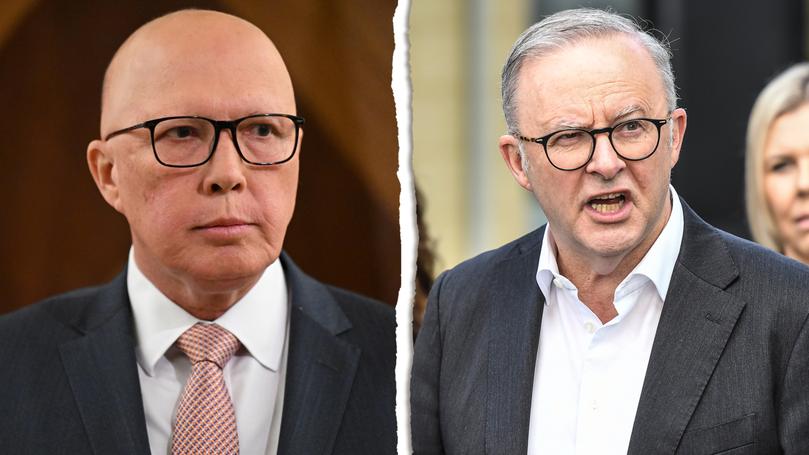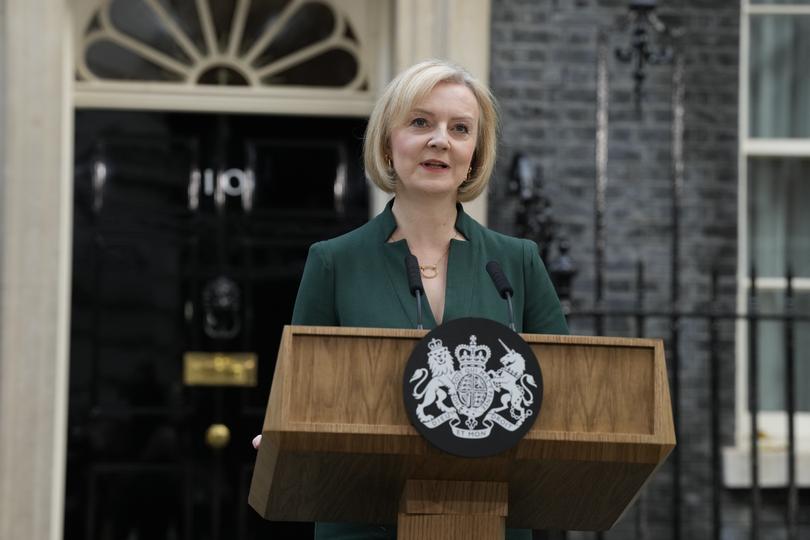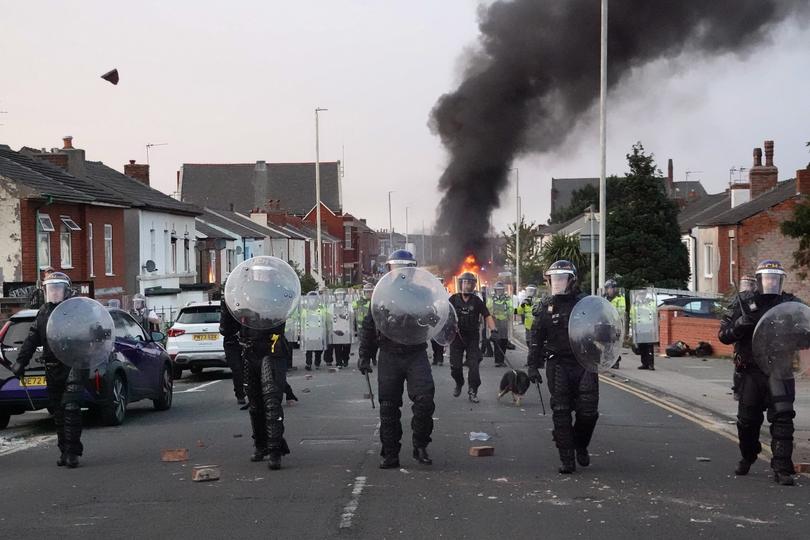Can Liberal leader Peter Dutton show the ailing British Conservative Party a way forward?
A party ruined at the ballot box after years of leadership chaos, an empty agenda and caught in the crosshairs of a fierce battle about its political direction — sounds familiar, right?

A party ruined at the ballot box after years of leadership chaos, an empty agenda and caught in the cross-hairs of a fierce battle about its political direction. Sounds familiar, right?
The above refers to the current state of the British Conservative Party but as of two years ago, it could easily have been a precis of where the Coalition found itself following the Australian public’s repudiation of the unlikeable Scott Morrison.
Fast forward two years and the Coalition is in a place no one thought they would be — neck-and-neck in the polls.
Sign up to The Nightly's newsletters.
Get the first look at the digital newspaper, curated daily stories and breaking headlines delivered to your inbox.
By continuing you agree to our Terms and Privacy Policy.“When we lost in 2022, Anthony Albanese looked like a two-term minimum PM,” Guy Creighton, a political consultant who worked on both the Liberals’ and Tory party’s most recent losing campaigns, told the Nightly, in his first comments since the UK election.
“Thanks to Peter Dutton’s disciplined commitment to retail politics — things voters actually care about — he has completely reversed Labor’s fortunes.”
The Coalition’s competitiveness, under Dutton’s stewardship, in the polls should not be understated.

It’s worth recalling how delighted Labor was when the Coalition chose Dutton as their leader.
“Voldemort” crowed cabinet minister Tanya Plibersek. “Mr Potato Head,” mocked left-wing supporters online.
But lately, the supposedly unelectable Dutton has not only begun to talk about winning but embraced the taunts.
“I get stick all the time for being bald — not bald by choice,” Dutton told 4BC radio this week.
“I get called Potato Head or whatever — water off a duck’s back.”
Dutton has slowly learnt to shelve his sensitivities and is now attempting to use humour to neutralise his opponent’s attacks on his physical appearance.
But that is a sidebar to his true successes which are unifying what should have been a hopelessly split Coalition, reorienting the opposition’s focus away from culture wars and sticking largely to the staple issues of the economy and cost of living, and finally demonstrating political courage.
It is easy to forget that when Dutton chose to oppose the referendum on the Indigenous Voice to Parliament, it was an unfashionable view to hold. Similarly, he has broken through what was perceived to be a non-negotiable no-no for Australia in proposing a civil nuclear energy industry, only to find a critical mass of voters are open-minded about the idea.
“Dutton continues to be underestimated whilst Albanese is still being overestimated,” Tony Barry, director at the Melbourne-based apolitical research firm RedBridge Group, and former Liberal party strategist, deputy state director and adviser to Malcolm Turnbull said.
“Dutton still has a lot of work to do but he has exceeded all expectations to date.
“However, it’s still Anthony Albanese’s election to lose with the electoral arithmetic still very difficult for the Coalition.
“At the moment we don’t know where these numbers are landing in a very fragmented electorate including the Teal seats.”
Barry has been one of the toughest truth-tellers to the Liberals over the past few years. So his assessment carries weight and underlines the giant leap the opposition has made from standing on the precipice of a near-extinction event in May 2022 when it lost 18 seats and slumped to its lowest-ever representation.
While Barry doubts the likelihood of Coalition victory, a feat that would rewrite modern political history, the fact that it is even a probability and that a minority Coalition government could be another possibility, is exactly why the UK Tory party should be paying attention to what’s happening in Australia as it prepares to select its next leader.
The British Conservatives face a three-month contest to choose that person. Not that you’d know it. The six candidates, who will eventually be whittled down to a final two to be put to a membership vote, have struggled to get much airtime in the British press.
The reason is obvious — who cares about the decimated Tories, five years out from the next likely election? The answer is not many.
Ispos found this week that 62 per cent of Britons do not personally care very much or at all who becomes Tory leader and this included 36 per cent of Conservative voters.
But they should care and Peter Dutton’s example is why.
This applies particularly to the Tory party members. Their last pick was the disastrous Liz Truss whose time in Number 10 was outlasted by a wilting lettuce.

When Tory party members choose their next leader ahead of the November 2 announcement, they should prioritise electoral viability over any temptation to engage in a bout of self-indulgence.
After all, the Conservatives face a similar dynamic – a lacklustre Labour Prime Minister in Sir Keir Starmer who ran on a micro-target strategy and won a majority on a historically low primary vote, an overall slump in support for the two majors and a rise of minor parties, including Nigel Farage’s Reform.
Polls might be a bit pointless at this time in Britain’s electoral cycle but a survey by BMG Research showed Labour’s support continuing to fall to 33 per cent and Reform’s climbing to 18 per cent, just six points shy of the Conservatives.
“It’s a difficult time to be an incumbent government and it’s even more difficult if you’re perceived by swing voters to be a mediocre incumbent government,” said Tony Barry.
“There’s a new tribalism and fragmentation fueled by grievance which is making it very difficult for incumbent governments everywhere.”
The recent riots, which delayed Sir Keir from taking his post-election summer holiday, demonstrated that, unlike Australian Labor, there will be no prolonged honeymoon for the new Labour government, if at all.

The unrest, some of which was directly targeted against asylum seekers living in British hotels, shows that immigration will remain an outsized political battleground in the UK for the foreseeable future.
“Everything that’s happening in the UK right now just reinforces the existential weakness the Tories had on immigration during the election,” said Mr Creighton.
“Nigel Farage’s Reform took millions of votes away from them largely because conservatives lost their legitimacy on dealing effectively with the issues of asylum seekers and immigration.”
On immigration, Labour is also vulnerable. One of Keir Starmer’s first acts was to scrap the Rwanda deportation plan. So the government has no deterrent and no credible way of stopping small boats from crossing the English Channel.
And for as long as the boats come, Farage’s hand only grows stronger, likely at the expense of both Labour and the Tories.
Mr Creighton says for this reason, the Tories should be choosing its new leader sooner rather than later so it can focus on tackling the effects felt by the record levels of immigration, rather than getting bogged down in culture wars, including the faux battle about whether Britain should withdraw from the European Convention on Human Rights.
“The focus for the next Tory leader should be on substance over ideology,” he said.
“Conservatives need to reflect the concerns of their electorate and they’re not doing that by bandying terms around like the ECHR.”
“It’s important to remember that Labour’s primary vote was significantly reduced from their 2019 results.
To become an effective opposition they have to give a reason for all of the Reform voters to come back into the tent.”
Centre-right politics has suffered a serious setback in the UK.
But revival is possible. It is now up to what remains of the Tory party to show the discipline, focus and courage they were incapable of demonstrating when they had power.
A starting point would be choosing a leader who can take them to the next election, and dare to try and win it.

